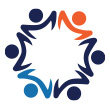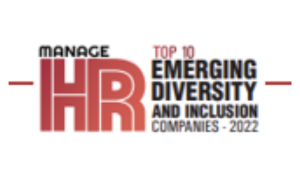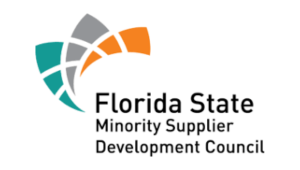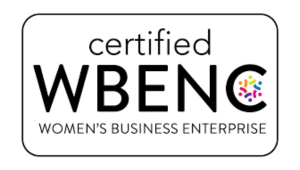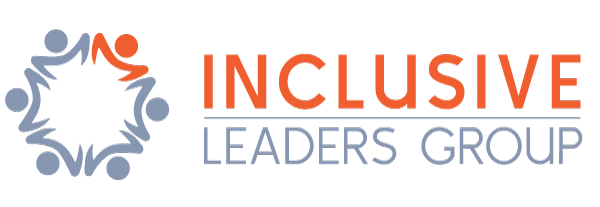It’s A Matter of Choice
In today’s highly competitive post-George Floyd employment world, employers are striving to be different from other organizations by becoming an “employer of choice.” An employer of choice is an organization people choose to work for when presented with other employment choices. This choice is a conscious decision made when joining and staying with that organization.
The positive impact of the “Great Resignation” is that employees are being heard for the first time on a massive scale. Simply put, they want their employers to be flexible with their personal needs, schedules, and preferences even more now than ever before. For that reason, flexibility is the key to attract and retain talent. Today’s workers have more choices than ever before in history. Many people have a wide range of choices of occupation, employer locale, industry, and work arrangements.
My research-based advice to Inclusive Leaders Group partners seeking to become an employer of choice in their industry or community is to embrace anti-racism wholeheartedly.
Employees Want Workplaces That Are Committed to Anti-Racism
Two-thirds of Americans say they want their companies to speak out publicly against racial injustice, according to a 2021 Harris Poll survey:
- A majority of the 2,035 adults surveyed said they would hold their employers accountable if they failed to do so, particularly workers 45 or younger. What’s more, 54% said they would consider quitting if their employer did not take a stand.
- A majority of Americans — 69% — believe that racial injustice is a problem in the United States, and 60% said they now think racial injustice is a bigger problem than they thought it was before the events of 2020-2021.
- While a majority of people shared this perspective across all demographic groups, perspectives on racial injustice varied by age and race/ethnicity, with younger generations and people of color being more likely to think racial injustice is a problem in the U.S. than older generations and white Americans.
- People between the ages of 18-44 are more likely than those 55+ to believe racial injustice is a problem in the U.S. (76% vs. 62%).
- The majority of Americans — 66% — think businesses should take action on racial injustice issues.
- People also want to talk about racial injustice at work: 68% of Americans believe people should be able to discuss racial justice issues at work.
Racism is Costly For Employers
Racial bias in the workplace is annually costing U.S. businesses $54.1 billion in increased absenteeism, $58.7 billion in lost productivity and $171.9 billion in turnover, according to research from the Society for Human Resource Management (SHRM). Black employees are most at risk for experiencing bias, followed by Latino and Asian-American employees. However, even employees who don’t directly experience bias are negatively impacted by observing others being treated unfairly.
Key findings from the new SHRM research include:
- Over 2 in 5 Black workers (42 percent) feel they faced race- or ethnicity-based unfair treatment at work in the past five years.
- Over the same period, 26 percent of Asians, and 21 percent of Hispanics or Latinos, have experienced unfair treatment in the workplace due to their race or ethnicity.
- Turnover due to racial inequity in the workplace may have cost U.S. organizations up to $172 billion over the past five years.
- Absenteeism due to anxiety, worry, stress, or frustration stemming from experiencing or witnessing unfair treatment based on race or ethnicity in the workplace may have cost U.S. businesses up to $54 billion in the past year.
- Lost productivity was even more costly, carrying a nearly $59 billion price tag in the last year.
Employers Should Provide Anti-Racism Awareness and Education
The Harris Poll and SHRM research data influenced my editorial content planning of The Inclusive Enterprise Podcast that I host. The Podcast features my conversations with outstanding inclusive leaders that provides actionable best practices and tips for our audience of business leaders and professionals. I encourage you to listen to two of this Season’s highest rated and downloaded episodes focused on workplace anti-racism and racial healing:
My schedule since the summer of 2020 has been kept busy by organizations realizing that they need to think and talk about race, and many feel unprepared. To help them get started, I provide people with my How to Talk About Race in the Workplace Resource Guide. For knowledge and skills building on race, allyship, and belonging for a truly inclusive culture, my team and I get actively involved through awareness building and educational inititiatives.
Inclusive Leaders Group Anti-Racism Workshops and Keynotes
My approach to anti-racism training and talks is teaching leaders and groups to recognize the ways that white supremacy and implicit bias are a part of their behavior and how they shape nearly every institution and industry in the U.S. Depending on the organization, they can be a day-long training or several shorter sessions spread out over days, weeks or months. Instructional design of my anti-racism education includes confronting one’s own privilege and taking individual and collective actions to counteract systemic racism. Upon request, I can tailor my anti-racism workshops for different industries such as when I designed and delivered, Allyship Skills for Health Care Professionals for The American Society for Healthcare Human Resources Administration (ASHHRA) is the nation’s only membership organization dedicated to meeting the needs of human resources professionals in healthcare.
My anti-racism education programs are often requested by HR and Talent Development departments at organizations such as half day and one day workshop versions of BRAVE Workplace Conversations About Racism and Inclusion delivered as a partnership webinar event for SHRM Jacksonville and ATD NE Florida.
Usually, before accepting a speaking or training engagement, I perform a thorough needs analysis by asking questions about specific issues that people of color at the organization have been experiencing. In some cases I recommend an assessment of how willing the potential partner organization is to center the voices of employees of color and invest money in making changes based on what those voices are saying. Anti-racism and allyship cannot be “a nice thing to do”, but rather must be a firm commitment to be an employer of choice.
Interested in learning more about anti-racism education?
Is your company ready to take strategic and sustainable action to become an anti-racist workplace? Want to learn more about race, anti-racism and allyship? Contact me to schedule a needs assessment conversation at charlotte@inclusiveleadersgroup.com or use my contact form.
As CEO and Principal Consultant of Inclusive Leaders Group, LLC, Charlotte Hughes MS, CDP, SHRBP, CPLP brings a diverse background as an accomplished Workforce and Organizational Development and Diversity & Inclusion global thought leader and practitioner for several major Fortune 100 companies and one of the largest health systems in the U.S. Charlotte delivers more than 60 speeches and facilitates roughly the same number of training workshops each year.
